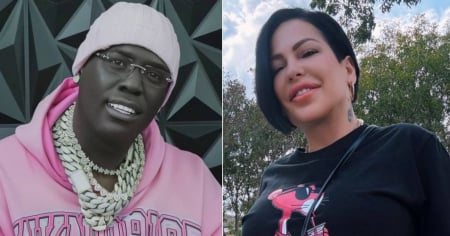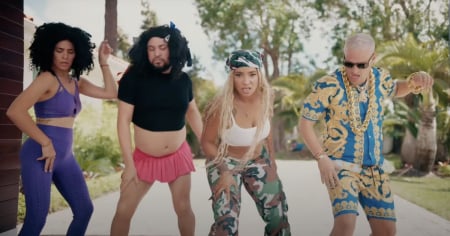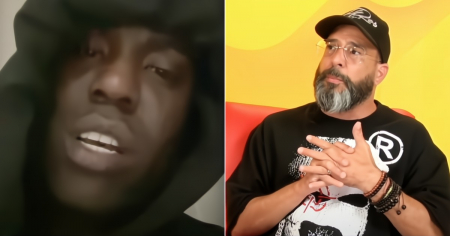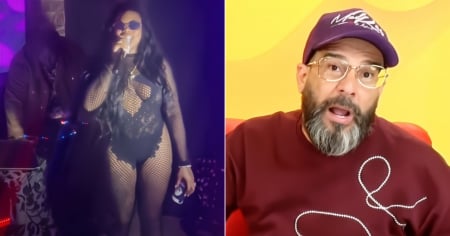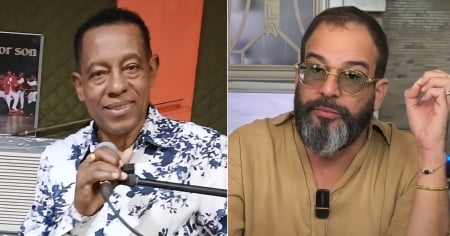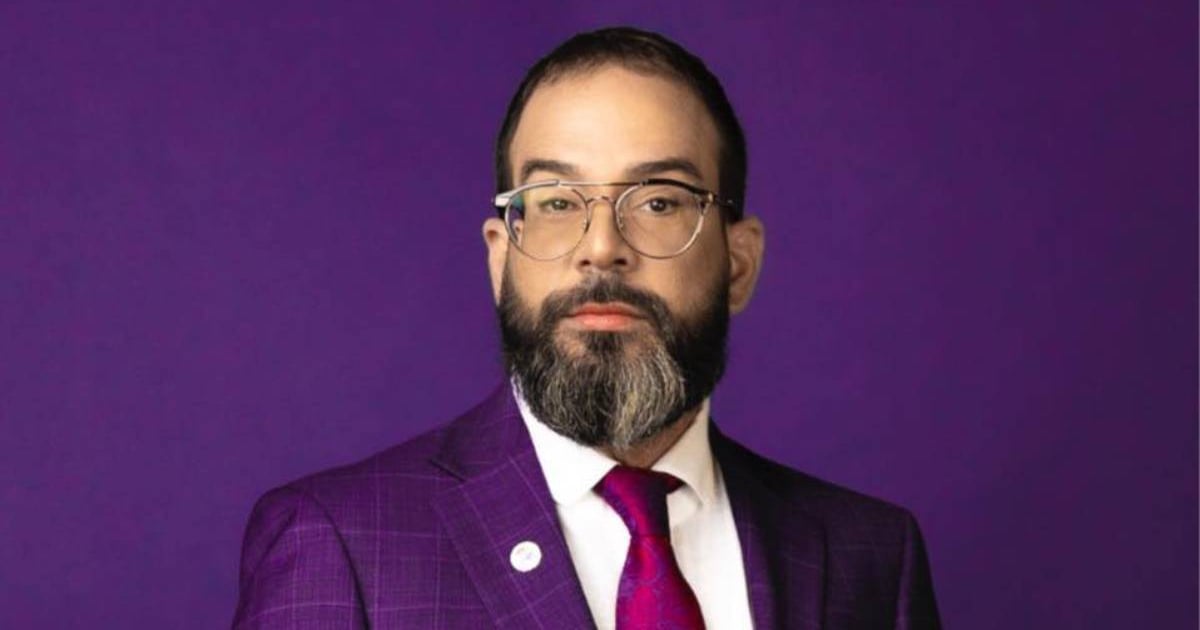
Related videos:
The Cuban presenter Alexander Otaola reacted this Sunday with an ironic tone to the announcement that the government of the United States has begun notifying the revocation of legal status to beneficiaries of humanitarian parole, among them Cuban citizens.
"For now, videos of reunions and nostalgia have stopped being seen. Does no one want to walk the streets of their neighborhood again?" he wrote on Facebook, referring to the fading enthusiasm expressed by many Cuban emigrants upon arriving in the U.S. under parole, as they now have to return to the island.
"Wasn't family supposed to come first? What happened?" he continued, reinforcing his critique of those who—according to him—expressed nostalgia for leaving Cuba but now act in contradiction to what they claimed to feel.
The controversial post made by the presenter provoked various reactions. Sheyla Sotolongo expressed: “How cynical you are. I feel the same revulsion that Díaz-Canel transmits to me. My little ones cry because their daddy couldn't come to see them. Yes, the same one who had to separate from them in search of new opportunities and a better economy for his family, and to free us from the dictatorship. Oti, you are just another dictator.”
For her part, Leonor De Las Casas commented: “But don't they know how to interpret? They have so much hatred for Alexander Otaola that they all go off on a tangent. He's not talking about the Cubans who go or don't go; he's referring to the propaganda from agencies and others. What strikes me the most is how Cubans living in Cuba comment. What a lack of discernment they have, for God's sake!”
"Just because you don't have family in Cuba doesn't mean others don't have the right to visit their people. Not everyone is going to spend money on hotels and such. Where is the freedom that is so often glorified in this country? Do we now have to do whatever others want? I don't think that's the kind of freedom we all want," stated Humberto Carlos Torres Hornia.
Lázaro Carlos Cuesta Rodríguez commented: “What happens is the following: a person like you, devoid of feelings, family, and a sense of belonging, obviously thinks that way. When you know what it is like to have a family, a mother, a father, or a child, you will understand the meaning of those videos. Feed yourself with love, affection, and, above all, take an antidote against the poison in your heart.”
The presenter Alexander Otaola has maintained an active and controversial stance on the Cuban immigration issue in the United States. Last January, he sent a reassuring message to Cubans with I-220A and I-220B immigration documents, stating that those who behave properly and are in the process of legalization will not be deported.
In his view, only those with criminal records or connections to the Cuban regime should be concerned. "You are not going to be deported," he stated, as long as you follow the laws, work, and keep your status up to date.
In February, during his program “Hola Ota-Ola,” the influencer warned about a massive review of between 42,000 and 47,000 political asylum cases requested by Cubans in recent years.
According to assurances given, U.S. authorities would be reviewing these cases for possible fraud, focusing on those who have returned to Cuba after obtaining asylum status. In a stern tone, Otaola emphasized that those who have manipulated the immigration system should not complain if they face legal consequences.
Recently, Otaola publicly supported Congressman Carlos Giménez for requesting the deportation of a hundred Cubans linked to the regime, many of whom are beneficiaries of humanitarian parole.
In his speech, the presenter praised the report submitted to the Department of Homeland Security and celebrated the beginning of an offensive against what he describes as the infiltration of Cuban repressors. His support marked a turnaround in his relationship with the politician, whom he had criticized days earlier for his alleged passivity.
Frequently asked questions about the revocation of humanitarian parole and the criticisms of Alexander Otaola
What has the U.S. government announced about humanitarian parole for Cubans?
The United States government has begun notifying the revocation of legal status to beneficiaries of humanitarian parole, which includes Cuban citizens. This means that those affected will have to leave the country before their immigration status expires, a measure that has generated significant discontent and fear among the impacted communities.
What has been Alexander Otaola's reaction to the announcement of the revocation of humanitarian parole?
Alexander Otaola has reacted in an ironic and critical manner to the notice of revocation of humanitarian parole. Otaola has questioned the lack of enthusiasm from those who, upon arriving in the U.S., expressed nostalgia for Cuba and are now required to return. He maintained his critical stance towards those who, according to him, have manipulated the immigration system and defended actions against those with ties to the Cuban regime.
How has the Cuban community reacted to the revocation of humanitarian parole?
The Cuban community has reacted with outrage and concern regarding the revocation of humanitarian parole. Many consider it a low blow to those who entered the U.S. legally with the hope of building a new life. Social media has become a platform for expressing discontent, with comments denouncing the measure as inhumane and a betrayal for those who trusted the U.S. immigration system.
What implications does the revocation of humanitarian parole have for the beneficiaries?
The revocation of humanitarian parole means that beneficiaries must voluntarily leave the U.S. before their status expires, or they may face expedited deportation processes. Furthermore, the associated work permit will become invalid, which directly impacts the job and economic stability of those affected. This situation creates uncertainty and challenges for those who had begun to settle in the country.
Filed under:

